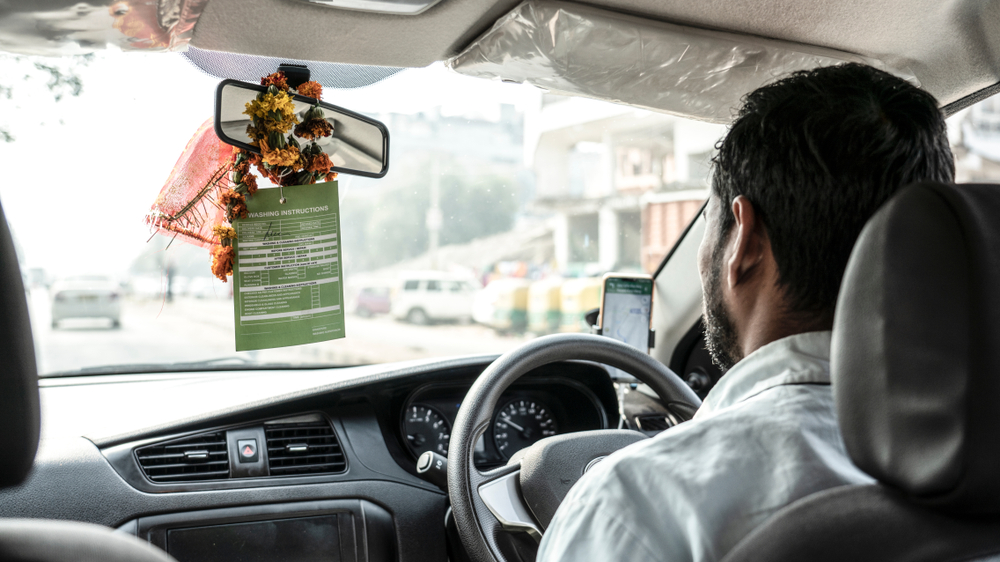Uber still "short-changing" drivers despite minimum wage u-turn
The App Drivers and Couriers Union say the firm isn't fully compying with the legal minimums


Sign up today and you will receive a free copy of our Future Focus 2025 report - the leading guidance on AI, cybersecurity and other IT challenges as per 700+ senior executives
You are now subscribed
Your newsletter sign-up was successful
Uber has been accused of "short-changing" UK drivers by only committing to paying the minimum wage while they have a passenger.
The ride-hailing firm said on Wednesday that it would treat UK drivers as workers and pay them minimum wage, holiday pay and sick pay.
However, James Farrar and Yaseen Aslam, the two former drivers that brought the legal action against the firm, said the firm still isn't doing enough.
In a statement released by the App Drivers and Couriers Union (ADCU), the two said Uber had "arrived to the table with this offer a day late and a dollar short, literally".
Uber's announcement, it should be said, only came after a prolonged court battle that ended with the Supreme Court ruling its drivers were to be recognised as workers and entitled to the minimum wage.
On Wednesday, the firm said it would commit to "at least" the minimum wage, but only after a driver had accepted a trip request and also after expenses. The firm called this a "floor not a ceiling", suggesting that its UK drivers can make more money this way.
Farrar and Aslam claim, on the other hand, that this means the drivers will be "short-changed to the turn of 40-50%".
Sign up today and you will receive a free copy of our Future Focus 2025 report - the leading guidance on AI, cybersecurity and other IT challenges as per 700+ senior executives
"While Uber undoubtedly has made progress here, we cannot accept anything less than full compliance with legal minimums," the pair said in a statement. "We would also expect to see Uber make progress towards trade union recognition, a fair dismissals appeals process and a data access agreement."
Uber has also agreed to fortnightly paid holiday time, based on 12.07% of a driver's earnings, a pension plan, sick pay and the freedom to choose "if, when and where they drive".
"This is an important day for drivers in the UK," Jamie Heywood, Uber's regional general manager for Northern and Eastern Europe, Uber said. "Uber drivers will receive an earnings guarantee, holiday pay and a pension, and will retain the flexibility they currently value.
It is thought that Uber's u-turn could lead to changes within the gig economy where millions of people tend to work for one or more companies on a job-by-job basis.
"Uber is just one part of a larger private-hire industry, so we hope that all other operators will join us in improving the quality of work for these important workers who are an essential part of our everyday lives," Heywood added.
Bobby Hellard is ITPro's Reviews Editor and has worked on CloudPro and ChannelPro since 2018. In his time at ITPro, Bobby has covered stories for all the major technology companies, such as Apple, Microsoft, Amazon and Facebook, and regularly attends industry-leading events such as AWS Re:Invent and Google Cloud Next.
Bobby mainly covers hardware reviews, but you will also recognize him as the face of many of our video reviews of laptops and smartphones.
-
 IDC: The business value of IBM Maximo
IDC: The business value of IBM MaximoWhitepaper Integral to the transformation of asset management
-
 UK firms are pouring money into AI, but they won’t see a return on investment unless they address these key issues
UK firms are pouring money into AI, but they won’t see a return on investment unless they address these key issuesNews An SAP report projects increased AI investment, but cautions that too many organizations are taking a fragmented approach
-
 Intel makes high-level hires while factory workers are warned of layoffs
Intel makes high-level hires while factory workers are warned of layoffsNews The company is appointing four senior executives as part of efforts to refocus on engineering and customer relationships
-
 UiPath names Simon Pettit as new AVP for UK and Ireland
UiPath names Simon Pettit as new AVP for UK and IrelandNews The seasoned leader will spearhead region-specific transformation projects as UiPath looks to drive operational growth and customer engagement
-
 How to empower employees to accelerate emissions reduction
How to empower employees to accelerate emissions reductionin depth With ICT accounting for as much as 3% of global carbon emissions, the same as aviation, the industry needs to increase emissions reduction
-
 Worldwide IT spending to grow 4.3% in 2023, with no significant AI impact
Worldwide IT spending to grow 4.3% in 2023, with no significant AI impactNews Spending patterns have changed as companies take an inward focus
-
 Report: Female tech workers disproportionately affected by industry layoffs
Report: Female tech workers disproportionately affected by industry layoffsNews Layoffs continue to strike companies throughout the tech industry, with data showing females in both the UK and US are bearing the brunt of them more so than males
-
 How can small businesses cope with inflation?
How can small businesses cope with inflation?Tutorial With high inflation increasing the cost of doing business, how can small businesses weather the storm?


